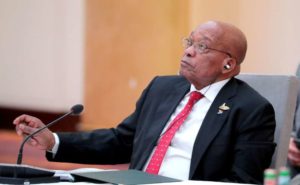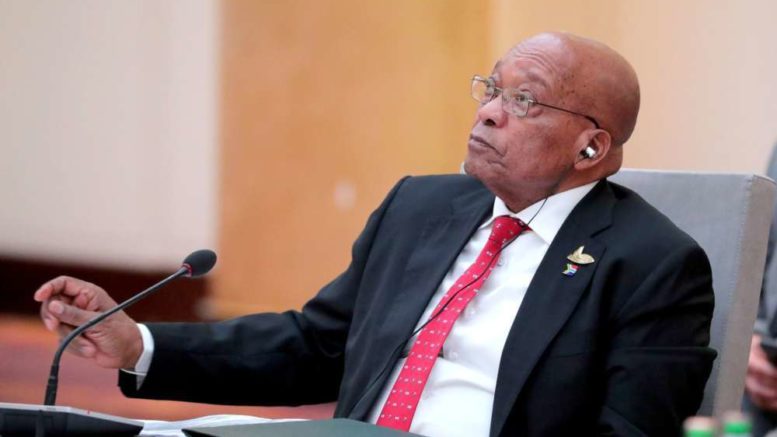By Martin van Staden – 13 October 2017


The Supreme Court of Appeal has ruled that the dropping of corruption, fraud, and racketeering charges against President Jacob Zuma by the National Prosecuting Authority (NPA) was irrational.
The Democratic Alliance (DA) will now approach the National Director of Public Prosecutions (NDPP), Advocate Shaun Abrahams, and insist “that Jacob Zuma is served with an indictment and appears in court at the soonest available date. Adv Abrahams must commit to reinstating all 783 charges, and furnish the people of South Africa with a date by which these charges will be processed. […] The charges have been formulated and the evidence is ready. We now await a trial date”.
Most politically-conscious South Africans support this decision and regard it as a victory for justice. Things are, unfortunately, not quite that simple.
The NPA is not a non-partisan or independent institution. It is supposed to be, but in practice, this has rarely been the case. Section 179(1)(a) of the Constitution empowers the President to appoint the NDPP and section 179(6) provides that the Minister of Justice is the responsible politician for the NPA. Flowery language about obligatory independence aside, the current NDPP and his predecessors have all to greater and lesser extents been (ostensible) puppets of the President. It is thus reasonable to assume that if Jacob Zuma is charged with anything, regardless of how strong the evidence might appear, the NDPP will appoint a prosecutor who will either:
Be an incompetent lawyer. President Zuma is known for retaining highly-skilled advocates, often not in government service, to plead his cases before court. If his counsel is pitted against an incompetent state prosecutor, Zuma’s victory is assured.
Throw the case. The prosecutor might be a highly-skilled advocate, but since the discretion in how to plead his case will lie exclusively with the prosecutor, he might certainly throw the case. He can do this by under-emphasizing key evidence, by posing irrelevant questions to key witnesses, or simply closing his case before any relevant evidence has been led. Zuma’s advocate can then make a very strong defense against the deliberately-weak case of the prosecutor.
The President, essentially, controls both sides of the case: His defense counsel as well as the state prosecutor, albeit indirectly.
South Africa still has a largely-adversarial system of litigation, meaning the court itself does not participate, but rather observes what the opposing advocates do and makes a final decision. It is true that sometimes the court will intervene, but this is not a general rule. Fate will need to give this particular case a highly-objective and interventionist judge to ensure the NPA executes its duty faithfully. Unfortunately, this will also mean that the judge might appear biased and thus give either party grounds to set the decision aside, depending on the outcome.
The worst aspect of this phenomenon is that if Zuma is acquitted (found innocent) as a result of the prosecutor having pleaded a bad case – and one must remember that guilt must be proved beyond a reasonable doubt, which is a high standard which can easily be thrown – he will henceforth be protected by the principle of double jeopardy.
Section 35(3)(m) of the Constitution provides that accused persons may not “be tried for an offence in respect of an act or omission for which that person has previously been either acquitted or convicted”. In other words, if he is found innocent of the charges, Zuma will be off scot-free forever.
Hence why it is irresponsible for a case to be pursued against him at this time. Under an African National Congress (ANC) government, with an ANC president, an ANC justice minister, and an ANC NDPP, the likelihood that the case against Zuma will be a sham is too high. Instead, if charges are to be brought against him, it must be done when a different political party or a coalition government is in power. Or, if it is possible, a special, independent, prosecutor who is not part of the NPA nor subject to its rules and directives, should be allowed to pursue the case.
The DA is being overly-hasty by demanding the case proceed immediately. In my view, without saying the President is actually guilty or innocent, his ostensible innocence will be guaranteed if charges are now brought against him. By getting ahead of ourselves we are begging for the Rule of Law to be side-stepped.

